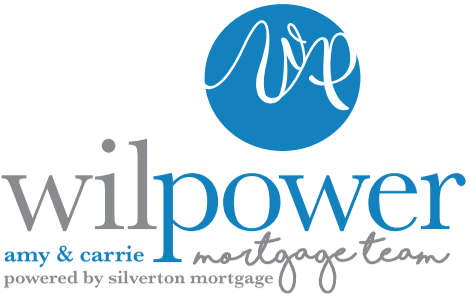

What We Do
In today’s market, buyers are under pressure to select just the right house, for just the right price, at just the right time – all with just the right mortgage. The WilPower Team with Silverton Mortgage is here to make your home buying process as easy and stress-free as possible by offering the most reasonable lending terms and rates along with the highest level of service available. Browse our programs →
Meet Your Team
Led by Amy Wilemon and Carrie Powers, The WilPower Team with Silverton Mortgage is known for the kind of superior service and attention to detail that only finely tuned teamwork can provide. We specialize in finding the right program to get you into your home. Whether you are refinancing or purchasing a new home, The WilPower Team is committed to finding the best loan for your unique needs.
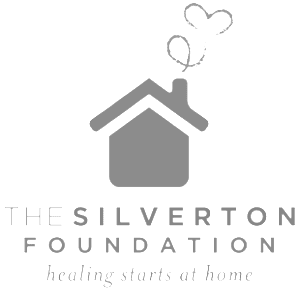
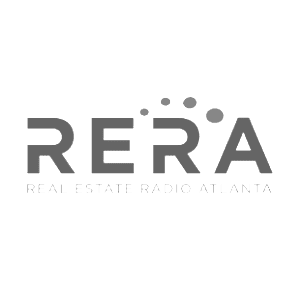
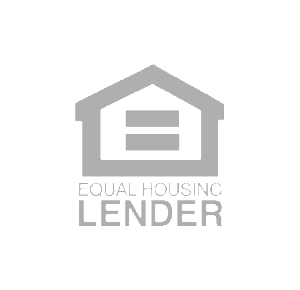
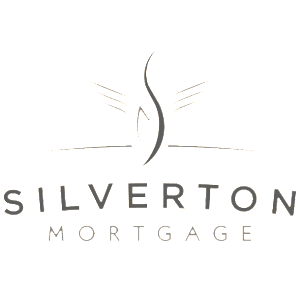
Some of our friends and partners.
Most Popular Programs
FHA Loans
FHA loans have been helping people become homeowners since 1934. The Federal Housing Administration (FHA), which is part of HUD, insures the loan, so your lender can offer you a better deal. Learn more →
Conventional Loans
As opposed to an FHA Loan, a conventional mortgage—such as HomeReady and HomeStyle Rehab—is not insured or guaranteed by the federal government. Sometimes called a conforming loan, a conventional mortgage loan adheres to the guidelines set by Fannie Mae and Freddie Mac and may be fixed or adjustable rate. Learn more about HomeReady → | Learn more about HomeStyle Rehab →
Refinance
With interest rates near historic lows, many homeowners are literally cashing in on the cheap credit markets. Homeowners who qualify can get no-money-down refinancing and even cash back – all while decreasing the monthly mortgage payment and long-term cost of your home. Learn more →
Renovation Loans
With a Streamline FHA 203(k) Renovation Mortgage or HomeStyle Rehab Loan, you can add a deck or new porch; purchase new appliances; modernize the kitchen and baths; replace the furnace; paint the exterior or interior; install new windows; replace roofing, gutters or siding; and more! Learn more about 203(k) → | Learn more about HomeStyle Rehab →
VA Loans
VA Loans require zero down payment and offer low interest rates. The WilPower Team is approved for automatic and LAPP processing of VA loans, so we can close your loan without waiting for VA to approve your credit application. Learn more →
USDA Rural Loans
In your are looking to buy a home with zero down payment, the USDA Rural Development loan might be for you. Just because you see the word “rural” in the name doesn’t mean we’re talking farmland. You might be surprised at how many neighborhoods qualify! Learn more →
Frequently Asked Mortgage Loan Questions
How do I know which home loan program is right for me?
The first step in determining which program is right for you is to ask yourself the important questions listed below. These questions can help you confirm that you’ve chosen the right mortgage professional as well, because he or she should be asking you the same questions before trying to put any mortgage in place:
- Do you plan on living in your new home less than 5 years?
- Do you expect any changes over the next few years, such as expanding your family or having children go off to college or even move away?
- Do you expect any changes in income due to promotions, relocations, retirement, inheritance, or pensions?
How do I find a certified Mortgage Loan Officer I feel comfortable with?
In July 2008, congress passed the SAFE Act (Secure and Fair Enforcement for Mortgage License Act). This Act was put in place to provide uniformity and consistency in the mortgage industry, increase integrity in the residential mortgage loan market, and reduce fraud.
Beginning in 2010, a mortgage professional must complete 20 hours of education and passage of a national exam to become a certified Mortgage Loan Officer (MLO). The State of Georgia requires additional hours of education, and mortgage professionals must pass a state exam as well. Just because someone works at a bank, does not mean they are certified. ALWAYS ask if your mortgage professional is certified.
Once you are assured that your MLO is licensed, make sure they answer all of your questions thoroughly, and they make you feel at ease. A real pro will go the extra mile to look out for your best interests and gain your respect. Sincerity is key. The right MLO for you will seek to exceed your expectations in every way by having a system in place that provides your complete satisfaction.
Is my credit ready for a home purchase?
A credit score is an extremely important financial tool. It provides access to the financing you need to buy a home. Since higher scores equate to lower costs and vice versa, it’s vital to understand the factors involved in calculating your score. Here are the five elements that make up a credit score, in order of importance: Payment History, Amounts Owed, New Credit, Length of Credit, and Types of Used Credit.
When your Mortgage Loan Officer pulls your credit, your mid score (the middle of all three credit bureaus) must be at least 620. The general rule of thumb is, the higher your score, the better rate you receive. However, this may not always be the case with some government loans such as Rural Development, FHA and VA.
It is also important to note that once you start the loan process, you should avoid making any major purchases. You might be thinking about purchasing new appliances for the new home. This is not the time to do it! Avoid making any major purchases on jewelry, appliances, furniture, vacations, or anything with a significant price tag until after your loan has closed to avoid any surprises at the closing table.
How much can I borrow?
It’s important to think carefully about how much you’ll actually need to borrow in order to purchase a home. From the down payment to taxes to insurance and interest rates, there are many factors to consider when making this important, life-changing decision.
Contrary to popular sentiment, there is no standard formula for accurately calculating the exact dollar amount you should borrow when purchasing a home. Many websites offer special mortgage calculators that claim to factor in important variables, and yet final results vary vastly from one site to the next. Other websites offer general rules of thumb, suggesting that you should never borrow more than 2 1/2 – 3 times your gross annual income, or that 28%, 32%, or even 40% is the maximum amount of debt you should ever take on.
At The WilPower Team, we know that every person and every loan is different, therefore no online calculator can factor in your unique needs and circumstances. So please beware of websites whose calculators ask for your personal information, such as your social security number. The likely just want your personal information.
As a free basic service to our customers, we offer some of the most robust, customizable online mortgage calculators available anywhere – and none of them require your personal information! Even so, they are just a guide and not a substitute for a Certified Loan Officer. Please use them for estimates only.
What is the difference between pre-approval and pre-qualification?
Pre-qualification is the starting point in your search for mortgage financing. A quick snapshot is taken which includes income, existing debt, savings, length of employment, etc. All of these factors will then be analyzed to determine your loan eligibility.
Pre-approval is written documentation that shows you have the support of a lender who is willing to finance you. It means an underwriter has reviewed your loan application. Based on your income, debt ratio and savings, the underwriter provides the dollar amount you are eligible to borrow. Now you can shop around for houses that fit into that loan amount category.
With a pre-approval in hand, you now have the power to negotiate. The seller will take your offer much more seriously knowing you are already approved by a lender. Pre-approval can also shorten the time it takes to close, making even a lower bid attractive to sellers who are seeking to move quickly.
In fact, in highly competitive markets, many selling agents will advise their clients to refuse offers – and even showings – from buyers without pre-approval letters. So it’s not only a great idea to get pre-approved; it may be a requisite to get your foot in the door.
What documents will my Mortgage Loan Officer need from me?
To start with, your Mortgage Loan Officer will need personal information to verify employment for you and your co-borrower (if there is one). They will also need information regarding all of your assets and debts.
In order to expedite the paperwork process, start gathering the following items:
- Most recent month’s pay stubs.
- W2s from the past two years.
- Signed copies of your past two years’ tax returns, including all schedules that were filed.
- Homeowner’s insurance company name and number.
- Most recent two months’ bank statements.
- Most recent two months’ statements from retirement and investment accounts.
- If you are self-employed, a year-to-date profit and loss statement will also be required.
What kind of loan is best for me: Fixed or ARM?
The 30-year fixed loan is the most popular choice –and usually the best option – for the average home buyer. However, ARMs, or adjustable-rate mortgage loans, sometimes provide an attractive option as well. If you plan on keeping the home fewer than five years, an ARM may be the way to go. Many of the homeowners who chose ARM loans are actually seeing their rates decrease, not increase.
Just keep in mind that sometimes there is a cost to avoid uncertainty. You may want to pay more now for that 30-year fixed loan – just in case you don’t or cannot sell your house within five years. Given the current interest-rate outlook, many borrowers will opt to lock in today’s historically low 30-year fixed rates.
What are points and who should pay for them?
Points are up-front fees paid by the borrower to obtain a better interest rate on a loan. One point equals one percent of the loan amount. And while a lower interest rate may result in a lower monthly payment, it is important to consider how long you intend to be in the loan and to compare current interest rates to historical market trends. This will help you determine whether buying points is a worthwhile investment.
Tax deductibility is another thing to consider when choosing whether or not to pay for points. For new purchases, interest from both points paid and your mortgage are tax deductible up front. For refinances, however, points are not deductible up front. Instead the deductions are spread over the term of the loan (unless the entire loan is paid off early), making points more costly by comparison.
Ultimately, there’s a lot to consider when it comes to points and whether or not they are a worthwhile investment. An experienced Mortgage Loan Officer will work with you to determine the best course of action based upon your specific situation. Request a comprehensive cost comparison to see whether buying points is financially beneficial to you.
What are closing costs and who should pay for them?
Within three days of your application, your Mortgage Loan Officer must provide you with a good faith estimate of closing costs, the fees charged by the companies and individuals who are working on your loan. Some of these fees include processing and underwriting fess, appraisal fees, attorney fees, title search/insurance fees, origination fees, discount fees and so on.
Lenders allow the sellers to pay closing costs if agreed upon with the buyers. Depending on the loan program, the seller may contribute between 3% and 6% of price of the home to pay for closing costs. Sometimes this is enough to clover closing costs entirely; otherwise, buyers must pay the difference.
It is important that you work with your licensed Mortgage Loan Officer and licensed Realtor during the pre-qualification process to determine if you plan to pay closing costs. Here’s where choosing the right team can save you lots of money in your home purchase, as your Mortgage Loan Officer and Realtor will work hand-in-hand to determine the amount of closing costs you want to pay – if any – and negotiate it with the sellers.
What is the difference between the interest rate and APR?
When you get a mortgage, you are charged two different rates – the annual percentage rate (APR) and the interest rate.
The interest rate is the yearly rate lenders charge for permitting the borrower to use money for a specific length of time. The rate is calculated by dividing the total amount of interest charged by the loan amount. For example, if a lender charges a client $60 a year on a loan of $1000, then the interest rate would be (60/1000) x 100% = 6%.
The APR is a little more complex and comprises two factors: your actual interest rate and any additional costs. Additional costs might include things like prepaid interest, mortgage insurance or closing costs. (Please refer to FAQ above regarding these fees). Your APR represents the total cost of credit on a yearly basis after all charges are taken into consideration. It is typically higher than your actual interest rate, because it includes these additional items and assumes you will keep the loan for the full term.
As useful as the APR can be, it has its limitations. APR spreads the fees paid upfront over the life of the loan. So the comparison of APR is only accurate if you plan to keep the mortgage for the entire length of the loan. Since most borrowers do not keep their loan for the full period – they typically refinance or move –the APR can make some loans look artificially better. The other problem with APR calculations is that different lenders may include different fees in their APR calculations for various loan programs. Remember to always ask what is and is not included in your APR.
